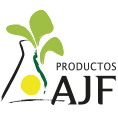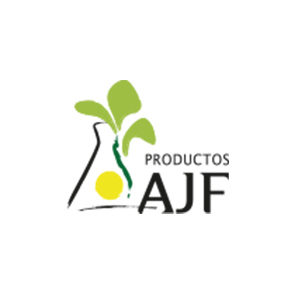1. What role does sulfur have as a substance applicable in agriculture?
Sulfur stands out for its multiple applications in agriculture, both as a phytosanitary product for the protection of crops, for its fungicidal and acaricidal properties, and for the possibilities it provides as an agronutrient, thanks to its potential as a fertilizer and natural biostimulant.
When applied in the crop plant, sulfur favors the formation of essential amino acids for its growth, such as cysteine and methionine, increases the chlorophyll level of the leaves and is part of the secondary metabolites that determine the smell and taste of various plant species.
In addition, sulfur also stands out for its capacity for the natural contribution of sulphates to agricultural soil, which is of great importance to reduce its alkalinity (or pH), balance its conductivity, increase the microbiota and unblock other macroelements such as phosphorus. This contributes to halt the gradual impoverishment of the cultivated area due, in many cases, to its overexploitation.
For all this, sulfur can be considered, without a doubt, as one of the substances whose natural composition is more complete and recommended for its application for the comprehensive improvement of agricultural crops.
2. Since when is sulfur used in agriculture for the protection and growth of crops?
The relationship between sulfur and agriculture dates back thousands of years, to the point that there is data that confirms that it is the first fungicide product used in the history of mankind.
It is estimated that the use of sulfur for agricultural purposes began in ancient Mesopotamia, although the first documented writing that refers to this aspect belongs to the classical Greek author Homer and is slightly more than 2,800 years old.
In it, Homer highlights the habitual use of sulfur as a product for the control of pests and diseases in agricultural operations of the time.
3. What does it mean that sulfur is considered a natural or non-synthetic product?
The fact that sulfur is considered a natural or non-synthetic product implies that its ability to provide essential nutrients to plants is determined by its own composition, which makes it an inorganic phytosanitary product, fertilizer and biostimulant.
Therefore, its applicability to crops does not require any prior chemical process or transformation, but rather its own natural properties, as is the case with other macronutrients for agricultural use such as phosphorus, nitrogen or potassium.
4. Why, unlike other substances or compounds, does organic farming contemplate the possibility of applying sulfur to its crops?
Organic farming limits the use of external resources in its crops to those natural substances or those derived from natural substances that also have low solubility.
Sulfur, by its own natural composition, meets these two key requirements, which explains the possibility of being incorporated in the care and fertilization of agricultural holdings that are governed by the production principles of organic agriculture.
5. Why are there criticisms that link sulfur with oil or with the emission of greenhouse gases?
This confusion has its origin in the fact that sulfur is a substance that is usually found in the natural environment adhered or joined to other minerals, such as coal or oil.
Thus, it is common for the oil refining process to find veins of sulfur, which must be separated from it for the treatment of both substances individually, but which, in no way, are related beyond this aspect.
6. What are the possible applications of sulfur in today's agriculture?
Sulfur is one of the natural substances that has the most complete characteristics for its use in the care and maintenance of agricultural crops, since it allows a practically integral treatment of the plant and the soil, thanks to its properties such as:
- Fungicide and miticide; the ability of sulfur to promote the autonomous generation of essential amino acids such as cysteine, cystine or methionine, contributes to increasing the natural defense mechanisms of plants against external diseases and pests, since these amino acids, and especially cysteine, They are essential in the synthesis of basic compounds for the plant’s immune system, such as glucosinolates or phytoalexins.
- Fertilizer; The slow release effect of sulfate ions generated by the application of elemental sulfur is essential to favor the nutrition process of the plant on which it is applied, since these are responsible for capturing the micronutrients from the environment and, in addition, contribute to improve their assimilation.
- Biostimulant; Sulfur, in addition, exerts a notable improvement in the growth capacity of the plants on which it is applied, mainly due to its properties to reduce salinity and the concentration of nitrates present in the soil, as well as to reduce possible excess phosphates, which can negatively affect its development.
Sulfur as a fungicide and miticide (powdered sulfur)
7. Powdered sulfur is considered a good agricultural fungicide. What does this mean?
When reference is made to the fungicidal capacity of elemental sulfur, in its powder presentation, mention is being made of its ability to prevent the growth of fungi harmful to plant growth.
Sulfur, in this sense, contributes to increasing the natural defense mechanisms of plants against the action of fungi, thanks to the natural stimulation that it generates in them for the autonomous generation of essential amino acids such as cysteine, cystine or methionine.
This is one of the reasons that explains the close relationship of powdered sulfur with wine production, since it is undoubtedly one of the products that offers the best results for the successful treatment of powdery mildew.
8. At the agricultural level, what are the properties of powdered sulfur as an acaricide?
Elemental sulfur, or powder, not only increases the plant’s ability to act against possible infections caused by fungi, but this natural improvement of its defense mechanisms also increases its protection against the presence of mites.
In this sense, sulfur offers a proven utility to face both the action of mites and eriophids as well as other larger arachnids, such as the red spider.
9. Why should powdered sulfur be highly considered as a phytosanitary product?
Powdered sulfur is a substance that favors the natural optimization of the plant’s own defense mechanisms, thus generating a gradual and lasting improvement of its immune system against possible harmful external agents, such as fungi and mites.
Likewise, powdered sulfur also stands out for its capacity for the natural supply of sulfates, which implies the possibility of exerting a triple effect (phytosanitary, fertilizer and biostimulant) through the application of a single treatment.
But, in addition, other additional aspects that serve to give a more approximate idea of the potential of powdered sulfur as a phytosanitary product can be mentioned:
- It is a natural substance, to which only treatment is applied to modify its format and adapt it to the needs of the consumer, making it possible to apply it both in conventional agricultural farms and in those that have the organic farming certificate.
- It is a phytosanitary product that has been used in agriculture for centuries, to the point of being considered the first fungicide used by humans. This aspect highlights its proven utility for crop protection and its extremely high adaptability from a great multiplicity of formats.
- In this sense, it is a phytosanitary product that has demonstrated its enormous effectiveness in the control and treatment of pests related to the harmful action of fungi and mites, as in the case of powdery mildew.
- In fact, the efficacy and safety of powdered sulfur are supported by a multitude of studies and registries at the European level.
- The possibility of obtaining sulfur from the existing deposits in the natural environment, without the need to proceed with its treatment other than to adapt it to different formats, also explains its marketing price that is clearly lower than other phytosanitary compounds.
- In addition, sulfur stands out for its more than considerable ease of application on crops, since the size of its granules is expressly designed to promote adherence.
- Finally, as a phytosanitary product, it plays an important role in improving crop productivity and thus reducing food waste that occurs during agricultural production due to partial or total loss of crops, which increases its sustainable nature as an element. to reduce the emission of greenhouse gases into the atmosphere.
10. Powdered sulfur, as a phytosanitary product, has a cheaper price than other compounds available on the market. Does this aspect have any relation to its quality and functionality?
Absolutely. The fact that elemental or powdered sulfur has a lower price than other phytosanitary compounds on the market is exclusively due to the fact that it is a substance of natural origin, which also requires a minimum treatment related to the improvement of its presentation and capacity for manipulation by the end user.
It must be taken into account that other phytosanitary compounds require several years of research and development, as well as an arduous process of processing to make possible their commercialization and use with the highest levels of safety for both users and plants, which explains its higher relative price compared to sulfur, offering similar results in terms of efficiency.
11. Various sectors of society dismiss phytosanitary products, including powdered sulfur, as toxic substances. To what extent is this statement true?
Sulfur is characterized by having practically zero toxicity, both for people and for the plants on which it is applied.
In fact, this is one of the elements that justifies its capacity for use both for the treatment of crops related to organic farming and those used for animal feed on livestock farms, in which there are exhaustive controls to reduce the toxicity levels and their possible influence on the natural environment and the final consumers of these products.
12. Can powdered sulfur be applied in organic certified agricultural productions?
Of course yes. Elemental or powdered sulfur is one of the substances whose use capacity is expressly included in Regulation 889/2008 of the Council of the European Union, on production and labeling of organic products, with respect to organic production, their labeling and its control.
Therefore, its use is not only possible, but rather it is highly recommended for the phytosanitary treatment of those agricultural productions that have an official ecological certification.
13. It is sometimes said that powdered sulfur presents safety risks, in its storage and handling. That's right?
It must be borne in mind that sulfur, due to its own natural composition, has flammable properties under various adverse conditions that, on the contrary, have been fully tested and documented.
For this reason, as with any other product, it is recommended to consult its instructions for use and handling in detail, and to follow the specifications offered by the manufacturer in terms of storage and transport, in order to guarantee that the performance of all These actions are carried out in accordance with the highest levels of security.
Sources consulted
AECOC (2019). Report ‘Spain, a country of frescoes’.
AEPLA (2019). Report ‘The future of the Spanish Agricultural Sector’.
Food from Spain (2019). ‘Report on Food Consumption in Spain 2018’.
National Institute of Statistics (2019). Statistical Yearbook of Spain 2018.
Mercasa (2019). ‘Annual report on food in Spain 2019. Production, industry, distribution and consumption’.
Ministry of Agriculture, Fisheries and Food – Government of Spain (2019). ‘Ecological agriculture. Statistics 2018 ‘.
Ministry of Agriculture, Fisheries and Food – Government of Spain (2019). ‘Survey on areas and crop yields 2019 (ESYRCE)’.
Ministry of Agriculture, Fisheries and Food. Official Web site.
https://www.mapa.gob.es/es/agricultura/temas/default.aspx
Food and Agriculture Organization of the United Nations – FAO. Official website (in Spanish)
http://www.fao.org/home/es/
Union of Small Farmers and Ranchers – UPA. Website of the ‘Sustainable by Nature’ Project
http://sosteniblespornaturaleza.es/es/


